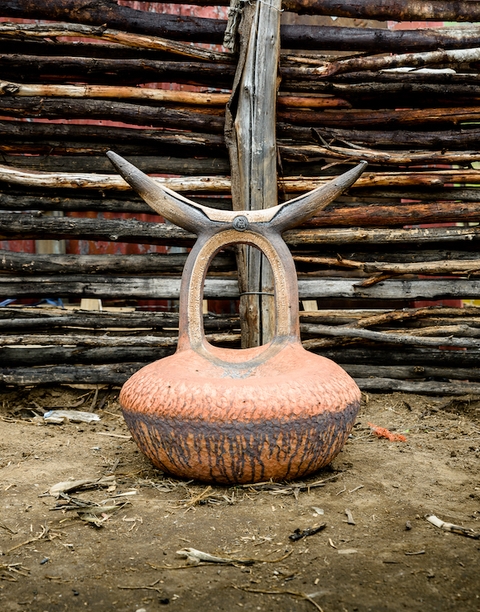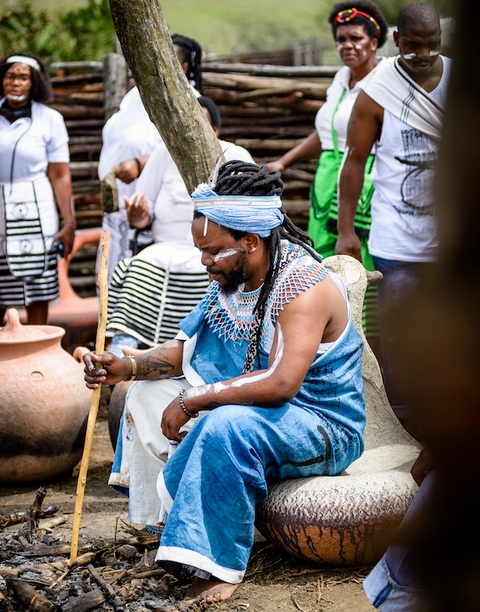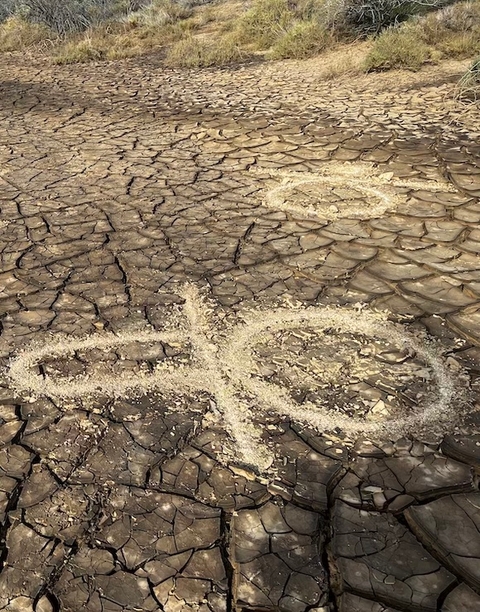My Enquiry (0)
No artwork has been selected.
Please choose an artwork to enquire.
Enquiry Submitted
Thank you for your enquiry and interest in our artists’ work. A member of the gallery team will respond shortly.
000%

Andile Dyalvane’s ‘iThongo’ goes home to Ngobozana
14 Dec 2020 (3 min) read
"Showing this collection first in Ngobozana was essential for restorative healing – for the sake of my ancestors and every person in my village."
For two days in November, the small rural village of Ngobozana in the foothills of the Amathole Mountains in the Eastern Cape was the site of an unusual presentation of art by one of the continent’s most respected ceramic artists. Cape Town-based Andile Dyalvane grew up in the village, roaming the surrounding hills, herding livestock and digging in the rich clay soil lining its riverside ravines. It is a place that moulded him, where he first heard the whispers of his calling as an artist and custodian of his Xhosa heritage. He has travelled the globe for residencies, workshops and exhibitions, but Ngobozana is where he feels most at home. So prior to opening his fourth solo show, entitled iThongo, he and the two galleries representing him – Southern Guild in Cape Town and Friedman Benda in New York – took the entire collection of 19 ceramic sculptures to his family’s homestead in Ngobozana.
iThongo means “ancestral dreamscape” in isiXhosa, a reference to the medium through which messages are transmitted from the ancestors. As such, it is an essential energetic link between the past, the present and the future, and the vital connection that fuels Dyalvane’s artistic practice and spiritual being.
iThongo is an ambitious body of work – a series of sculptural seats hand-coiled in terracotta clay, each standing at almost a metre tall. The design of each backrest is based on a symbol from an extensive lexicon that Dyalvane has devised for important words in Xhosa life – for example, entshonalanga (sunset), igubu (drum), umalusi (herdsman) and izilo (totem animals).
From 21-22 November, 18 of the ceramic seats were displayed in Dyalvane’s family kraal, forming an ihlelo (seating arrangement) for use during ceremonial activities. Family members and guests sat upon the chairs as the community gathered to celebrate one of their own, honour their forebears, feast, sing and dance.
“In all humbleness I wanted to help those at home to see themselves – how worthy and great they all truly are. Showing this collection first in Ngobozana was essential for restorative healing – for the sake of my ancestors and every person in my village. When we gather together to remember our origins and join together in song and celebration, we reconnect to our deepest dreams and proud truths. Camagu!” said Dyalvane.
Dyalvane presented the people of Ngobozana with 100 terracotta beer pots – one for every household – to use for drinking umqombothi (traditional beer). The gesture recalls an earlier gift about 10 years ago, when he returned home bearing a unique clay vessel for his father, to replace the plastic or metal buckets that have become so common. It was intended to demonstrate the ceramicist he had become in Cape Town, but it unfurled into a moment of profound awakening for Dyalvane as it set in motion a renewed embrace of Xhosa tradition among his immediate community.
One of the works from iThongo has stayed behind in Ngobozana: uMalusi, meaning “shepherd” or “the watcher”, installed as a piece of public sculpture on the hilltop opposite the village, where it looks out over his ancestors’ graves. It was here that his family lived before the Apartheid government forcibly removed them in 1965 and relocated them to the current site of Ngobozana. Raised on a plinth, the work is an offering from Dyalvane to the surrounding villages, an invitation to grieve what was lost, come together in song and heal the scars of displacement.
MUSIC CREDITS
Album: Embo – Ethongweni
Artist / Sound Curator and Composer: Mntana.WeXhwele
Writer: Macebogoduka
Producer: Nkosenathi Ernie Koela
Record group: uMnombo Institute – Indigenous Frequency Cast Music
Click here to watch the iThongo movie, made in cooperation with BMW South Africa.

